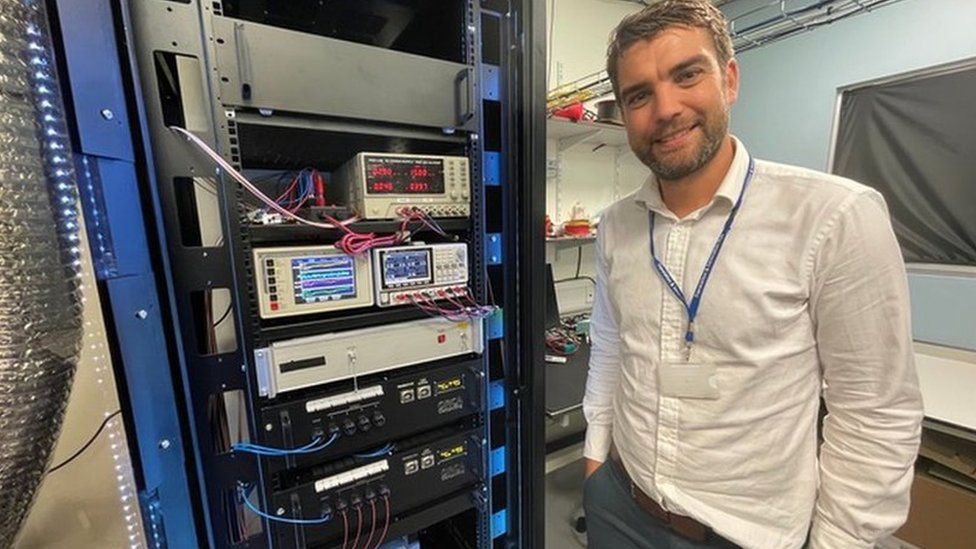British firm claims quantum-computing breakthrough
Most of the major players in this field, including Google and IBM, use an approach involving freezing qubits, the building blocks of a quantum computer, down to near absolute zero.
...
Opening what looks like a standard server cabinet in Orca's compact offices on a west London science park, Richard Murray points to the computer and says: "We're completely changing the way people view quantum computers.
"Firstly, it's not cryogenically cooled, it's all at room temperature.
"And you'll also see it looks a lot like a normal computer would - it's a rack-mounted system, it looks very unspecialist.
"Our approach uses single photons, so single units of light.
"And the great thing about single photons is that they don't interfere with the outside environment."
...
"There's certainly a few important companies working on it," he says.
"Photonics is definitely not a fringe approach."
But Orca's four-qubit machine has about the same power as a thermostat or an Apple Watch.
"It's in an earlier stage in terms of qubit number than what Google and Rigetti and IBM are doing with superconducting qubits," Prof Morton says.
And scaling up is likely to be a major challenge.
See the full story here: https://www.bbc.com/news/technology-58738571?fbclid=IwAR0p4wFaqFYVFF-JUmaHF2_0NqjoRP-RNAh6vHIsX9x907I5kOF1fDC6uBw

Pages
- About Philip Lelyveld
- Mark and Addie Lelyveld Biographies
- Presentations and articles
- Tufts Alumni Bio